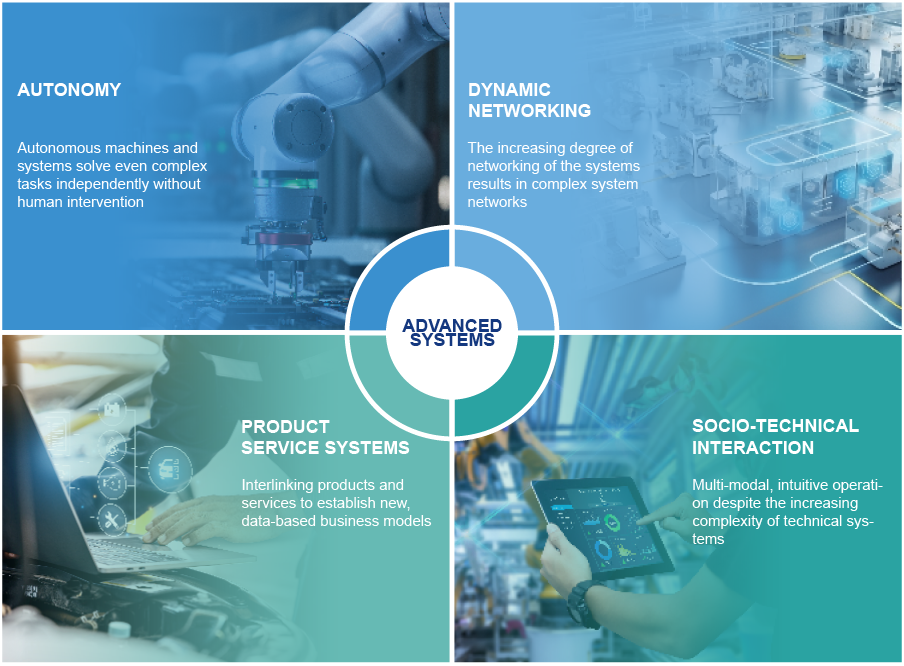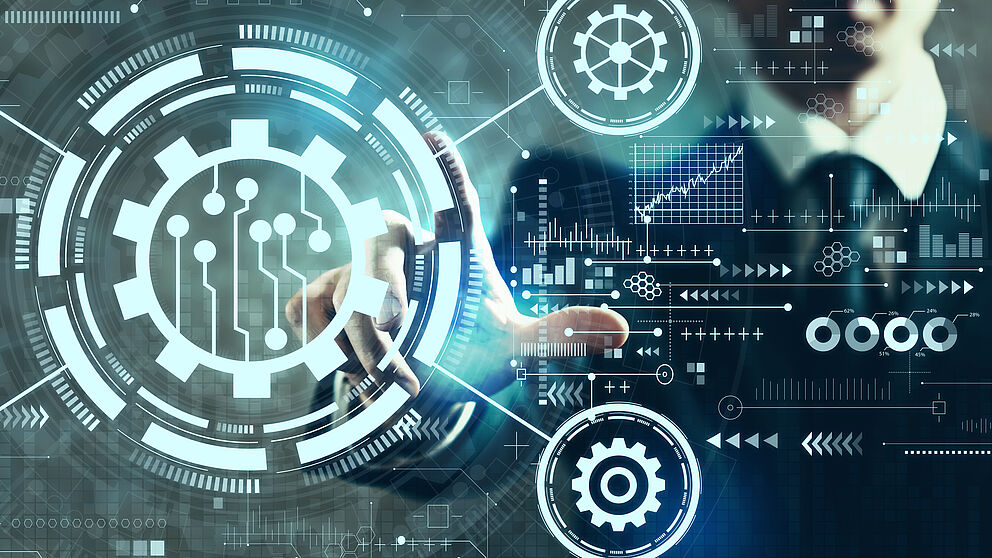Research content
Development of intelligent technical systems
Digitalisation is regarded as the most important driver of change of our time. It is creating fascinating opportunities and potential benefits for the industry, but digitalisation and growing sustainability requirements are also changing the market services of tomorrow and the way in which they are developed. Increasingly, technical and business perspectives on products must be considered in an integrated manner. This is why we closely interlink systems engineering and business engineering in order to develop intelligent technical systems. Traditional development methods are reaching their limits, and this is precisely where we come in.
In the context of our research, we conduct various research projects.
Exemplary research questions are:
- How will the environment for advanced systems develop in the future?
- How do companies need to position themselves in order to tap into future potential?
- How can advanced systems be strategically planned?
- Which methods and tools can support development?
What are Advanced Systems?
We define Advanced Systems by four basic characteristics:

Autonomy
Advanced systems independently solve complex tasks within a specific application domain. To do this, these systems must be able to act effectively without remote control or further human assistance.
Dynamic networking
With increasing networking, new, more complex systems are created whose functionality exceeds the sum of the functionalities of the individual systems. System boundaries, interfaces and roles of the individual systems can vary depending on the objective.
Product service systems
Product-service systems are characterised by a close integration of goods and services and create customer-oriented solutions to problems.
Socio-technical interaction
Technological developments are enabling more flexible interaction between humans and machines. Instead of replacing people, the main aim is to enhance human capabilities with machine intelligence.

